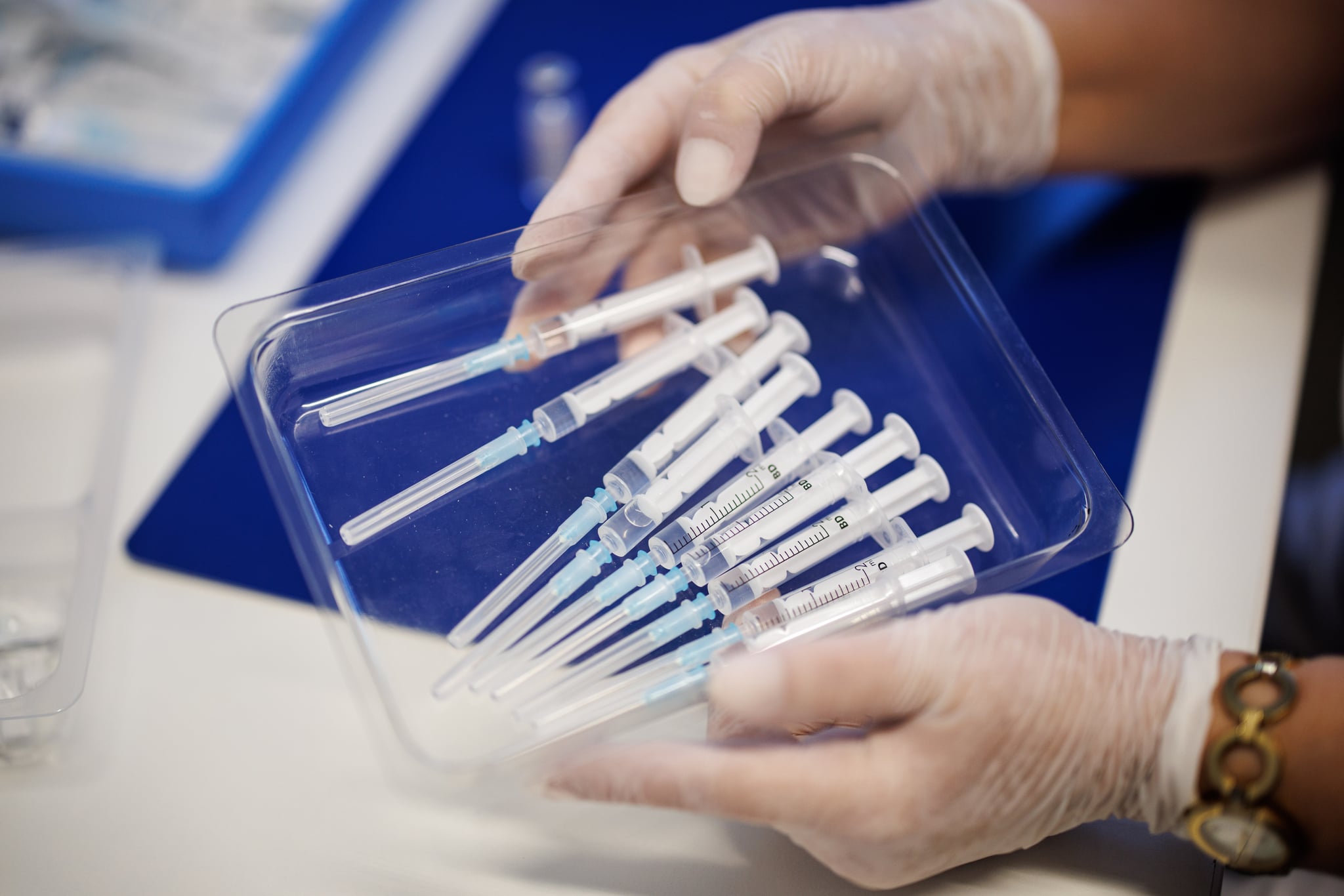A fourth COVID vaccine could be coming to market soon. On Tuesday, a FDA panel recommended that a vaccine from Maryland-based biotechnology company Novavax be approved for emergency use authorization. The usage recommendation for the two-dose vaccine is being made for adults ages 18 and older, with a three-week wait period between the initial and second dose of the series.
Pushback has been expressed from health officials and citizens about the necessity and safety of the fourth vaccine. The FDA recently published data showing the vaccine may cause myocarditis and pericarditis, albeit rarely, news that caused the company’s stock price to dip, reports Science. (Myocarditis and pericarditis is “the inflammation of the heart muscle” and “inflammation of the lining outside the heart,” respectively, per the CDC — a side effect also reported after the use of some mRNA vaccines).
But when FDA advisers were asked to vote whether the benefits of the Novavax vaccine outweighed the risks, 21 members voted yes, one voted no, and one abstained, moving the recommendation forward to the entire FDA for emergency use. Here’s what you need to know about the possible fourth vaccine.
Why do we need another vaccine option?
“I think the menu for COVID vaccine should be as large as as we can make it because there are important problems we still have to solve,” says Amesh Adalja, MD, senior scholar at the Johns Hopkins University Center for Health Security. Those problems, he says, include finding the best booster strategy and combating the anti-vaccination movement which has “maligned the mRNA vaccines,” causing vaccine hesitancy (one fourth of American adults remain unvaccinated, per Reuters). A new vaccine provides scientists and citizens with another option. “From a scientific standpoint, I think the fact that we have another tool to be able to mix and match with other vaccines to come up with the optimal cocktail of boosters and an initial vaccine series is going to be important,” Dr. Adalja adds.
How does the Novavax vaccine differ from other COVID vaccines?
“The chief difference that this is a protein-based vaccine, as Moderna and Pfizer vaccines are mRNA-based and the Johnson & Johnson uses a different virus to deliver the spike protein of SARS-CoV-2.” Novavax is a vaccine that delivers the spike protein “directly in the form of a protein,” which produces an immune response in the body that will protect against a future interaction with the virus. It’s a more traditional approach in that it uses the same technology used in influenza vaccines, HPV, hepatitis B, and shingles.
That being said, because the Novavax vaccine uses a spike protein based on the “ancestral” strain of the virus (Omicron), “it will likely have difficulty in preventing all infections from Omicron variants, just like the current other current vaccines,” Dr. Adalja says. But one thing that differs in Novavax is that the spike protein is coupled with an adjuvant, “a substance that stimulates the immune system,” Dr. Adalja says, which could play a role in how broad the response is in terms of protection against new variants that differ from the vaccine strain.
How effective is the Novavax vaccine?
In clinical trials, the Novavax vaccine had an 90 percent overall efficacy rate, per Novavax. Common side effects are similar to other vaccines, including fatigue, tenderness or pain at the injection site, headache, and muscle pain.
There has also been some concern over the vaccine’s ability to cause myocarditis and pericarditis. Still, chief safety officer, Denny Kim told FDA advisers: “We believe that the totality of the clinical evidence here is not enough to establish an overall causal relationship with the vaccine,” as reported by the AAAS. Novavax is reportedly monitoring these cases. What’s more, the vaccine has already been approved in more than 40 countries, per The Washington Post.
When will the Novavax vaccine be approved?
The vaccine has to get several green lights before it becomes available in the US. Right now, the recommendation for emergency use is what’s been put forward by the FDA panel. It is now on the FDA to weigh in. From there, it moves to the the Advisory Committee on Immunization Practices and the CDC director. As far as timeline goes, “in the best case scenario, probably a week or so if everybody moves fast,” Dr. Adalja says.
Image Source: Getty Images/Matthias Balk

